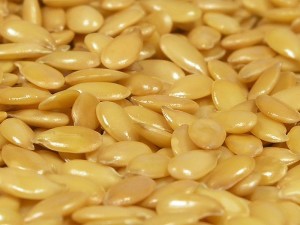The popular media keeps harking back that consumption of saturated fats is bad for the heart and that, vegetable oils are the best for our health. At the same time, health ads maintain that a high proportion of Omega-3 fatty acids is essential for a healthy heart. These two seem to be apparently contradictory to each other as vegetable oils have large amounts of Omega-6 fatty acids and very little Omega-3 fatty acids.
Hence, in the long run, consumption of only vegetable oils can result in an abnormally high ratio of Omega-6/Omega-3 (as high as 100:1) as against the ideal ratio of 3:1. Such a high ratio of Omega-6/Omega-3 is dangerous to the heart since it has the effect of over-stimulating the inflammatory processes in our body.
There is strong evidence to show that Omega-3 fats are beneficial for the normal functioning of the heart as they help in maintaining a steady heart beat and do not allow the heart to slip into a potentially precarious rhythm. Evidences also show that Omega-3 fatty acids may help in controlling rheumatoid arthritis, depression and many other evils.
Chemical nature of Omega-3 fats : In chemical terms, Omega-3 fats are a family of three polyunsaturated fats ,which are considered “essential” fats because they are not made by the human body and therefore, must be supplemented in our diet.
- Eicosapentaenoic acid (EPA)
- Docosahexaenoic acid (DHA)
- Alpha-linolenic acid (ALA)
A well balanced diet must contain all these in the right proportions. In our body, ALA is mainly used for energy generation, while EPA and DHA find their way into the synthesis of vital compounds. Inter-conversion from ALA into EPA and DHA occurs at a very limited rate. EPA,and DHA are known to lower triglycerides and blood pressure.
How much do we need: Estimates regarding how much of Omega-3 we need daily vary widely. According to standard recommendations, 4% of the total calorie intake must come from Omega-3 fats. This means that for an average adult with a total intake of 1800 calories daily, of which 20% is derived from fats and oils, about 12 g out of a total 40 g must come from Omega-3 fats. In order to meet this requirement, one must take about 180g of walnuts or 90g of flax seed or 1.2 liters of virgin olive oil per day. A 100g serving of soybeans, navy beans, or kidney beans in a day provides between 0.2 to 1.0 g of Omega-3 fats only. These figures show that although walnuts or flax seed can contribute to a Omega-3 rich diet, the levels at which these have to be taken is unreasonably high making it almost impracticable for anyone to meet the demand from plant based food sources. Similarly, for those, dependent on animal foods, a 120g serving of Chinook salmon fish provides around 2g of Omega-3 and one tsp of cod fish oil a day can give one gram of EPA and DHA.
How then do we maintain the ideal ratio of Omega-6/Omega-3? Conventional wisdom derived from classical literature suggests that the easiest and the best way is to drastically cut down on the total intake of vegetable oils and instead rely more on butter, ghee and coconut oil, which are quite rich in sources of Omega-3. Thus, if one limits the daily fat intake to about 10% of the total calories equivalent to 20 g/day, the amount of Omega-3 needed by the body is significantly reduced to about 6g/day.
Ghee contains linoleic acid, a Omega-6 fatty acid and Alpha-linolenic acid, a Omega-3 fatty acid in equal proportions and is unique in providing 1:1 ratio of Omega-6/Omega-3 fatty acids. Ghee is high in monounsaturated fatty acids (MUFAs) which are associated with prevention of heart disease and cancer. Ghee also comes closest to having the ideal ratio of MUFA to polyunsaturated fatty acids (PUFA) and is far superior to the popular vegetable oils which are very rich in PUFAs. At levels under 10% of total calories, ghee also appears to help lower the risk of cardio vascular diseases, especially when other fats consumed during the day is exclusively derived from plants.
Additionally, supplementing the daily diet with other natural sources of Omega-3 would be helpful in maintaining the ideal ratio of Omega-6/Omega-3 to ensure a healthy heart. Finally, an useful tip to remember. Omega-3 fats are sensitive to heat and therefore, frying of fish and roasting of foodstuffs containing Omega-3 fats should be avoided , as far as possible, to retain their health benefits. One of the best way would be to add flax seed chutney powder or flax seed chutney to the diet.



